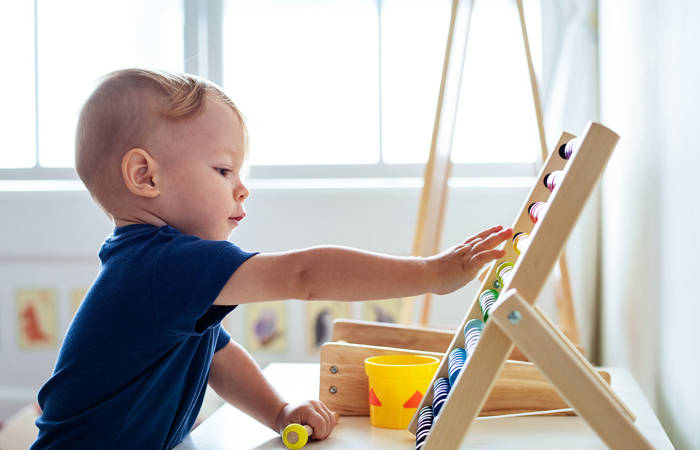Like what you see?
Sign up to receive more free parenting advice.
Thank you for subscribing to our newsletter!
Lifestyle

Credit: iStock.com/davidf
How should we make Australia a better place to be a parent and what would that look like?
Research commissioned by The Parenthood, undertaken by Equity Economics, has answered that question. Economists and researchers investigated policies, business practices and community supports, and examined the gaps in parenting support in Australia compared to international best practice.
The researchers found Australian parents are being let down. By the age of five 90% of a child’s brain is fully developed, yet policies aimed to help families through this important time are lacking.
Their report, titled Making Australia the best place in the world to be a parent, pulls no punches.
“Australia has no unifying strategy when it comes to policies affecting the lives of parents. Instead, there are disparate approaches to early childhood education and care, parental leave, perinatal health, gender reporting and taxation,” says Georgie Dent, Executive Director, The Parenthood.
“This fragmented system is challenging for parents to navigate and fails to deliver optimal outcomes - for children, parents, society and the economy.”
To improve Australia for parents, children, families and our economy, the report authors recommended significant investment in the following four areas.
We know that when parents are healthy, supported and protected, that has a positive impact on them and on their children and translates into an economic benefit.Georgie Dent
Stay up to date with the latest news and articles from First Five Years
Thank you for subscribing to our newsletter!
IMPROVEMENT 1: Prioritise parental health and wellbeing
We’ve long known that parental health and wellbeing in the pre and post-natal periods is important. But sadly, this is one area Australia is lagging behind best practice.
“We need an environment where parents have access to the kind of health support they need while they are pregnant, during childbirth and in those early years beyond,” says Georgie.
That means better access to mental health services and high quality medical care. Policies that help the individuals, but have a broader benefit too.
“We know that when parents are healthy, supported and protected, that has a positive impact on them and on their children and translates into an economic benefit,” says Georgie.
Supporting mental health has become even more important since the COVID-19 pandemic began. Last year, Melbourne University reported that employed parents with primary school aged children were nearly four times as likely to be in high mental distress during the pandemic, compared to pre-pandemic in 2017.
IMPROVEMENT 2: Improve our paid parental leave scheme
Parental leave has now been running for a decade, but Georgie says Australia’s scheme is far from the perfect.
“Australia has one of the least adequate paid parental leave schemes in the OECD. Plus, we are still very much wedded to the idea that once the baby comes along, mum stays at home predominantly and dad goes to work,” she says.
The report authors say we not only need longer parental leave – 12 months is suggested – but that this leave should be able to be more easily shared between both parents.
“We know that the caring patterns set up in a child’s first year persist over the life of the child. So when we don’t support fathers to take a considerable amount of time off, we are ultimately saying that fathers won’t have a meaningful caring engagement,” says Georgie.
Findings from the Australian Institute of Family Studies note the problem is not just due to insufficient government policies, stating:
“While some employers offer generous policies for fathers, these policies are not structurally embedded and can be changed at the whim of the particular workplace, relative to legislated standards and regulation.”
IMPROVEMENT 3: Offer free and high-quality early childhood education and care for all
To improve Australia for parents, the authors of Making Australia the best place in the world to be a parent, urge governments to make it easier for parents to access high quality early childhood education and care (ECEC) and to improve the participation rate in ECEC for three and four year olds.
Increased government support for out of pocket childcare fees is one way to achieve both goals. This would be particularly helpful for the one in five Australian children who are developmentally vulnerable when they reach school. But George Dents says there would be other advantages too.
“We know that high quality early learning is terrific for kids. But we also know that it is terrific for parents because it enables their participation in the paid workforce, and parents being able to earn enough money to cover the basic cost of living is very good for financial stress,” says Georgie.
IMPROVEMENT 4: Make life easier for working parents
The report notes that workplaces in Australia suffer because of inadequate policies on paid parental leave and access to early childhood education and care.
“That means families tend to adopt the old school, traditional model of one parent working and one parent caring. So our workplaces are not yet filled with parents who share caring,” Georgie says.
Georgie says if we had a paid parental leave scheme that promoted equitable sharing of care then we would end up with more supportive workplaces as a result.
“We can't be surprised that we don't accommodate parents in the way that they ideally should, because we don't have the requisite policy settings to enable that,” she says.
While workplaces can make positive changes to support working parents (and some do), experts point out that broad, sustainable change needs policy-based solutions.
“It's naive to expect a wholesale shift in our workplace cultures without the wholesale policy changes that we're asking for. It’s all interconnected,” says Georgie.
Helping families helps the economy
Importantly, the authors suggest their proposed changes would not only help Australian families, they would also provide a huge economic payoff.
Experts estimate that the cumulative impact of the proposed changes would increase GDP by 4.1 per cent by 2050 – that’s $166 billion a year. If Australia could lift female participation to that of males, the economic benefits would be even better: increasing GDP by 8.7 per cent ($353 billion annually) by 2050.
“This is the most compelling investment Australia can make – there is literally no logical reason not to pursue this reform,” says Georgie.







